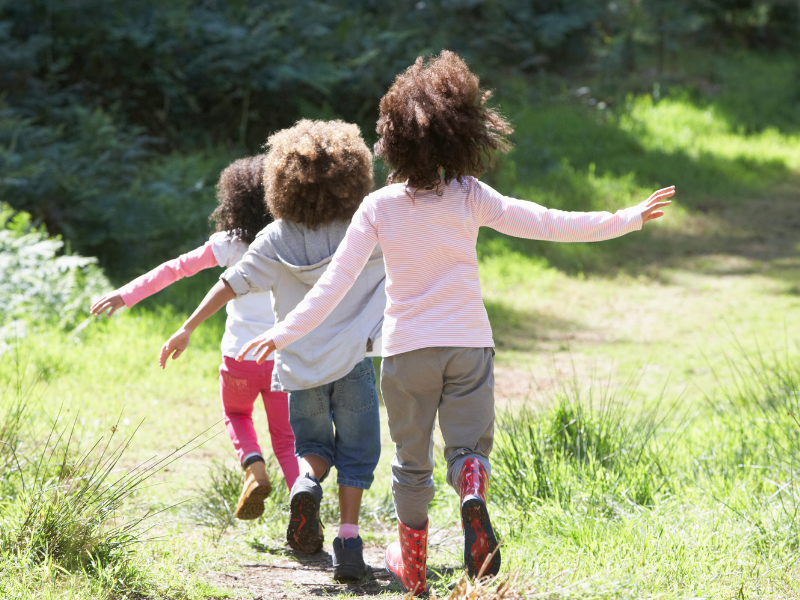
Cold sores in children
Most of us have experienced pain and illness at all stages of life. It is common knowledge that as a child you experience both more intensely than you do when you reach adulthood.
Over time, you learn that the pain from, for example, a cold sore is not permanent, and your pain threshold becomes higher. However, the symptoms that appear in connection with a herpes outbreak are still associated with great discomfort – even though we know that they will pass. And you can just imagine how excruciating it must be for a child.
QUR Herpes Gel
Buy your herpes cream here - Effective and discreet treatment of herpes 1 & 2
Buy here!
In this article, we focus on children and cold sores. You can read more about how to prevent infection in your child, get answers to the most common questions about herpes in children, and we give our best advice on treating cold sores – for both children and adults.
Why do children get herpes?
Cold sores, whether they occur in children or adults, are a symptom of Herpes Simplex , also abbreviated HSV. Children get herpes in the same way as adults, namely through direct physical contact, such as kissing or touching. The only exception is the transmission of the herpes virus from mother to child in connection with pregnancy.
There are two types of herpes virus, HSV-1 and HSV-2. HSV-1 is the variant that most often causes ulcers on the lips and in the oral cavity.
HSV-2 affects the mucous membranes and skin around the genitals. HSV-2 infection can be transmitted from mother to child if the mother has an outbreak of herpes immediately before birth. If the mother often has outbreaks of herpes 2, this is closely monitored by the doctor/midwife and it is considered whether a cesarean section should be planned or antiviral medication should be given in the last period leading up to birth. The risk of infection is small, but very serious and potentially life-threatening for the newborn.
Children are most commonly infected with HSV-1 and will typically begin to show symptoms of infection in the form of cold sores by the age of five. According to Netdoktor.dk, between a fifth and a third of all children have developed antibodies against HSV-1 – and this number increases to forty percent by the time the children become teenagers.
Herpes Simplex is thus quite common in children and adolescents. Of course, this does not mean that it is a condition that one should wish for, or a disease that one should refrain from treating. Read on to get answers to your questions about herpes in children.
Is herpes dangerous for children?
Cold sores caused by the HVS-1 virus are generally harmless for both children and adults. However, children may react more severely to the infection than adults, for example with fever and a more pronounced skin reaction.
There is no need to be particularly concerned about your child's health during a herpes outbreak. However, you should monitor whether your child is eating and drinking properly. Oral herpes in children can cause pain and make it painful to eat or drink.
A cold sore on the lip or in the mouth will heal on its own within a week. It is important that you help your child not to pick at their cold sore, as this will spread the infection and prolong the outbreak. You may want to put a band-aid on the wound.
Finally, it is important that you help your child maintain good hand hygiene during the course of the illness. Contrary to popular belief, the Herpes Simplex virus type HSV-1 can be transmitted to, for example, the mucous membranes around the genitals. It is therefore very important that the child washes his hands both before and after using the toilet if he has a herpes outbreak.
You should contact your doctor if your child shows signs of dehydration, has a fever, or develops a bacterial infection. You should also seek help if the wound has not healed on its own within 7 to 10 days.
How to treat herpes in children?
Children who show signs of Herpes Simplex outbreaks can be treated with the same topical medications as adults. This means that you can use creams or ointments that are available over the counter and at pharmacies to treat cold sores in children.
It is not recommended to use internal remedies, i.e. prescription medication in tablet form, for children unless the child's immune system is weak or the child suffers from other diseases such as childhood eczema. This can worsen the condition and prolong the symptoms, which is why medical treatment can be initiated in such cases.
However, this does not mean that you should simply let it sit when your child develops painful cold sores. You can use QUR Herpes Gel without any problems to relieve the pain and ease the course. QUR Herpes Gel has a documented effect on herpes virus, is CE marked and registered by the Danish Medicines Agency as an electro-medicine. QUR Herpes Gel works purely mechanically via positive ions. Herpes virus has a surface that consists of a lipid membrane that is negatively charged. QUR Herpes Gel has an ingredient called bentonite, which is a clay mineral that consists of a lot of tiny clay plates. The surface of each clay plate consists of, among other things, 6 positive ions. These positive ions attract the negative herpes virus, which is thereby neutralized so that it cannot multiply. Fenugreek seed extract, which is a well-known anti-inflammatory ingredient, soothes and heals the skin and minimizes the risk of inflammation.
QUR Herpes Gel is made without the use of problematic chemicals such as parabens, perfumes or dyes. The product is very pure and can be used by everyone – children as well as adults.
Apply QUR Herpes Gel to the cold sore as soon as an outbreak begins and discontinue treatment as soon as a scab forms. The gel has a soothing and moisturizing effect and is almost transparent so it is invisible. And three quarters of all herpes sufferers will statistically experience a halving of both the discomfort and duration of the outbreak.
Can young children get cold sores?
As previously mentioned, children infected with herpes will usually not develop cold sores until they are five years old – even if they have been infected before. In very young children, the infection manifests itself in the form of sores in the mouth.
This type of herpes is common in children and can cause a lot of discomfort. You may find that the child does not want to eat, drink or brush their teeth because it hurts too much in the mouth.
Oral herpes in children is a harmless, albeit painful, condition. You can try to relieve the pain as much as possible to reduce the discomfort. You can also give mild painkillers according to your doctor's instructions.
To ensure that the child gets fluids, you can wash up with a soda pop. This will relieve the pain while also providing the child with both fluids and electrolytes.
Can I infect my child with herpes?
Yes – you can infect your child with herpes, even if you don't have a cold sore. In fact, the vast majority of herpes infections in children occur through kissing and close contact with a parent. The Herpes Simplex virus can be transmitted even when the disease is not in an outbreak.
This means that you can infect your child if you kiss the child shortly before you experience a herpes outbreak. The virus may be active on your skin before you start to feel the symptoms.
However, you should not refrain from kissing or hugging for this reason. Although it is not nice to have herpes, it is also not advisable to avoid being around others for fear of infection. Learn more about herpes on our blog.
QUR Herpes Gel
Buy your herpes cream here - Effective and discreet treatment of herpes 1 & 2
Buy here!

